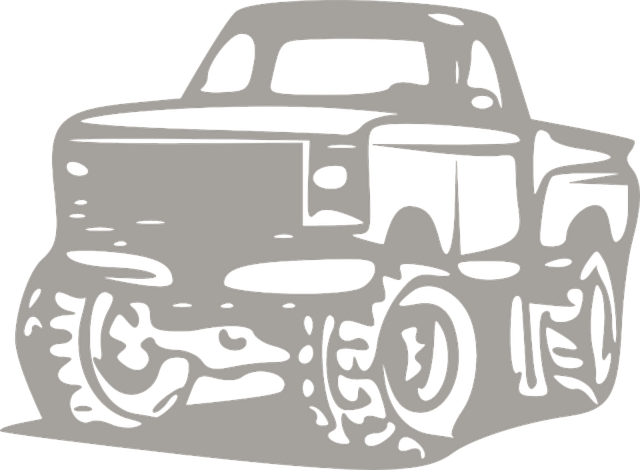Hitch balls are vital fleet truck diagnosis tools in Brownsville, Texas, aiding in trailer towing and cargo transport safety. They come in various types and sizes for different weight capacities, enabling mechanics to swiftly identify hitch issues and prevent costly breakdowns. Selection requires understanding specific towing needs, with experts guiding fleet owners in choosing the right hitch ball. Regular maintenance, including inspections, cleaning, lubrication, and replacements, is crucial to ensure optimal conditions and safety during long-distance trips.
“In the world of fleet management, especially for trucks, efficient and secure hitch systems are paramount. Understanding hitch balls—their purpose, benefits, and proper selection—is crucial for smooth operations in Brownsville, Texas. This article serves as a comprehensive guide, offering insights on how these diagnostic tools contribute to truck maintenance and overall fleet efficiency. From the basics of hitch balls’ functionality to troubleshooting common issues, we’ll explore best practices to ensure optimal performance.”
- Understanding Hitch Balls: A Brief Overview
- The Role of Hitch Balls in Truck Maintenance
- Advantages of Using Hitch Balls for Fleet Management
- Selecting the Right Hitch Ball for Your Truck in Brownsville, Texas
- Common Issues and Troubleshooting with Hitch Balls
- Best Practices for Maintaining Hitch Balls to Avoid Vehicle Malfunctions
Understanding Hitch Balls: A Brief Overview

Hitch balls are essential components for truck owners, especially those who frequently transport trailers or cargo. These mechanical devices serve as crucial fleet truck diagnosis tools, facilitating a secure and stable connection between the towing vehicle and the trailer. In Brownsville, Texas, where a vibrant trucking industry thrives, understanding hitch balls is vital for efficient logistics management.
With various types and sizes available in the market, hitch balls come in handy for different trailer setups and weight capacities. By using these tools correctly, drivers can ensure their cargo remains secure during transport, preventing potential accidents and damage. In the competitive world of trucking, knowing how to leverage fleet truck diagnosis tools like hitch balls is a key advantage for businesses aiming to optimize their operations in Brownsville and beyond.
The Role of Hitch Balls in Truck Maintenance

In the world of fleet management, particularly for trucks, efficient maintenance is key to keeping operations running smoothly. Hitch balls, though seemingly simple, play a crucial role in this process. These diagnostic tools enable mechanics and technicians in Brownsville, Texas, to quickly identify issues with truck hitches and towing systems. By using hitch balls as part of their regular fleet truck diagnosis routine, professionals can prevent costly breakdowns and minimize downtime.
As a testament to their importance, hitch balls facilitate accurate assessments of various components—from ball mounts and hitches to electrical connections. This proactive approach ensures that any problems are caught early, allowing for timely repairs. For instance, a mechanic might use a hitch ball to test the functionality of a truck’s towing system before embarking on a long-distance journey, ensuring safety and reliability for both the vehicle and its cargo.
Advantages of Using Hitch Balls for Fleet Management

Hitch balls offer numerous advantages for fleet management, making them essential tools for businesses in the transportation industry, especially in areas like Brownsville, Texas. One of their key benefits is facilitating efficient and quick vehicle attachments and detaches. This streamlining process saves valuable time during operations, allowing fleets to optimize their schedules and reduce downtime. With hitch balls, adding or removing trailers becomes a seamless task, ensuring smooth logistics management.
Additionally, these truck diagnosis tools enhance safety and fleet maintenance. Hitch balls are designed for durability and reliability, reducing the risk of unexpected failures during transport. This feature is crucial in preventing accidents and ensuring the integrity of cargo handling. Moreover, they provide fleet managers with an opportunity to implement a standardized system, enabling easier tracking, monitoring, and management of vehicles and their attachments across different locations.
Selecting the Right Hitch Ball for Your Truck in Brownsville, Texas

When choosing a hitch ball for your truck in Brownsville, Texas, understanding your specific needs is key. Consider factors such as the weight capacity required for your towing tasks and the compatibility with your vehicle’s existing hitch system. Fleet truck owners and professionals in Brownsville often rely on diagnostic tools to ensure they select the right hitch ball. These tools help identify the exact specifications of your truck, allowing you to make an informed decision based on accurate data.
For instance, if you frequently tow heavy trailers or have a large fleet of vehicles, a robust hitch ball with higher weight ratings and durable construction is essential. On the other hand, lighter duty applications might suit a standard hitch ball that offers balance and stability without excessive strength. Local truck repair shops and automotive experts in Brownsville can provide valuable insights and recommendations, ensuring you choose a hitch ball tailored to your unique trucking requirements.
Common Issues and Troubleshooting with Hitch Balls

Hitch balls, despite their simplicity, can present common issues that affect smooth operations for fleet truck owners in Brownsville, Texas. One frequent problem is misalignment, leading to improper loading and potential damage to both the hitch ball and trailer coupler. This misalignment often results from worn-out or damaged components within the hitch mechanism. Regular maintenance and timely replacements are key to preventing such issues.
Troubleshooting involves a systematic approach, starting with visually inspecting the hitch ball for any signs of wear or deformation. Using fleet truck diagnosis tools can aid in identifying mechanical problems. If the hitch ball is damaged, replacing it promptly is essential to ensure safe and secure trailer attachments. Additionally, checking the condition of the trailer coupler and ensuring it aligns correctly with the hitch ball is a fundamental step in preventing accidents and maintaining efficient cargo transport operations.
Best Practices for Maintaining Hitch Balls to Avoid Vehicle Malfunctions

Regular maintenance is key to keeping hitch balls in top condition and preventing any potential vehicle issues. For fleet owners or drivers using trucks in Brownsville, Texas, implementing best practices can save time and money in the long run. One of the most effective methods is to regularly inspect and clean the hitch ball and its corresponding hardware. This includes removing any debris, corrosion, or buildup that could affect the fit and stability during towing. Using suitable cleaning agents and brushes will ensure no damage occurs to the ball’s surface.
Additionally, lubricating the hitch pin and other moving parts can reduce friction and wear, making it easier to attach and detach the trailer. However, it’s crucial to use the right type of lubricant recommended for these components to avoid any adverse reactions. Another practice is to regularly check for any signs of damage or wear and replace faulty parts promptly. Fleet managers should also establish a schedule for thorough inspections, including testing the hitch ball’s strength and security, especially before long-distance trips. These simple yet effective measures will contribute to safer driving conditions and help maintain the efficiency of fleet trucks in Brownsville, Texas.
Hitch balls are indispensable tools for fleet managers and truck owners in Brownsville, Texas. They play a vital role in vehicle maintenance, ensuring smooth operations and safe travels. By selecting the right hitch ball and implementing best practices, fleet managers can optimize their trucks’ performance and minimize costly malfunctions. These diagnostic tools not only enhance efficiency but also contribute to the overall reliability of trucking operations in today’s competitive industry.



